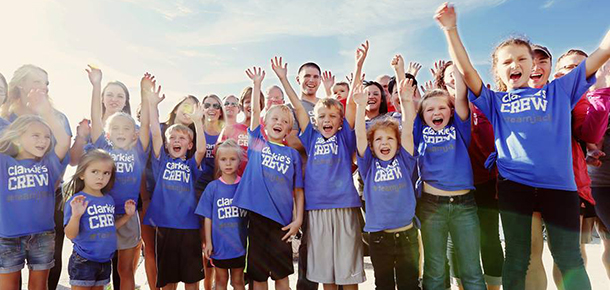Many children with congenital heart disease (CHD) or other long-term health conditions experience mental health struggles. Feelings of sadness, fear, worry, or anger are normal and common. While parents and other caregivers experience these feelings too, they also play a vital role in supporting their child to help them develop good mental health and cope during difficult times. Knowing you’re not alone is important, and so is having a sense of what to do when challenges arise.
Signs a Child is Experiencing Mental Health Struggles
- Changes in eating habits (eating more or less than usual)
- Changes in sleeping (sleeping more or less than usual)
- Restlessness or difficulty concentrating or paying attention
- Difficulty going to school or separating from caregivers
- Disruptive or angry behavior
- Physical complaints, like frequent headaches or tummy aches
- Lack of interest in favorite activities
- Withdrawal from friends and socializing
- Intense feelings of sadness, worry, guilt, or hopelessness
Many of these are part of normal child behavior and occur in the absence of mental health struggles. It’s when these difficulties are ongoing and interfere with your child’s daily functioning that it is important to seek help. If you have concerns about your child or notice changes in their behavior or skills, know that you can reach out for help through your child’s hospital, school, or primary care provider. We are here to guide you to what may be best for you and your family.
Here are a few ways parents and caregivers can help children with CHD build resilience and cope with the challenges chronic conditions bring.
Be a Safe Haven
Children need to feel safe, emotionally and physically, to feel and express their emotions. When children feel safe, they are free to explore, express themselves, and develop fully. We help children feel safe when we respond to their needs in a way that is consistent, attentive, responsive, empathic, and supportive. Predictability, with routines and rituals, creates a sense of safety for a child.
Moments of Play Go A Long Way
Play has many benefits for children. Whether it’s building toys, reading a book or going for a bike ride together, play helps children learn to regulate their emotions, develop their imagination, and expand their capacity for attention and concentration. In moments of fun and laughter, we share joy and help children discover positive traits about themselves and others. Through play, both you and your child can discover a depth of love and safety that will be very helpful during difficult or stressful times in the future.
Be Curious About Your Child’s Behavior
Children often show us what they are thinking and feeling through their actions. Putting words to feelings for younger children and asking older children questions like, ‘What do you think about that?’ or ‘What kind of feelings do you have now?’, are good ways to show you’re curious about your child’s behavior.
Equally important is listening to your child’s response and staying calm. Showing that your intention is to understand, not to try to change your child’s mind, conveys acceptance and a willingness to help. Children are more likely to come to us with a problem when they feel understood and supported.
Promote Choices Whenever Possible
Having a chronic illness can make a child feel like they don’t have control in their life. Children need to know they can overcome challenges and accomplish goals through their actions. Developing new talents and interests helps children feel competent and more able to deal with stress positively.
Providing choices when it comes to the things you do together, whether it’s the book you read, the movie you watch or the route you take on your walk, also shows children they can influence decisions in their lives. Many of these choices may seem simple, but they carry weight when it comes to helping a child establish a sense of control and build resilience.





